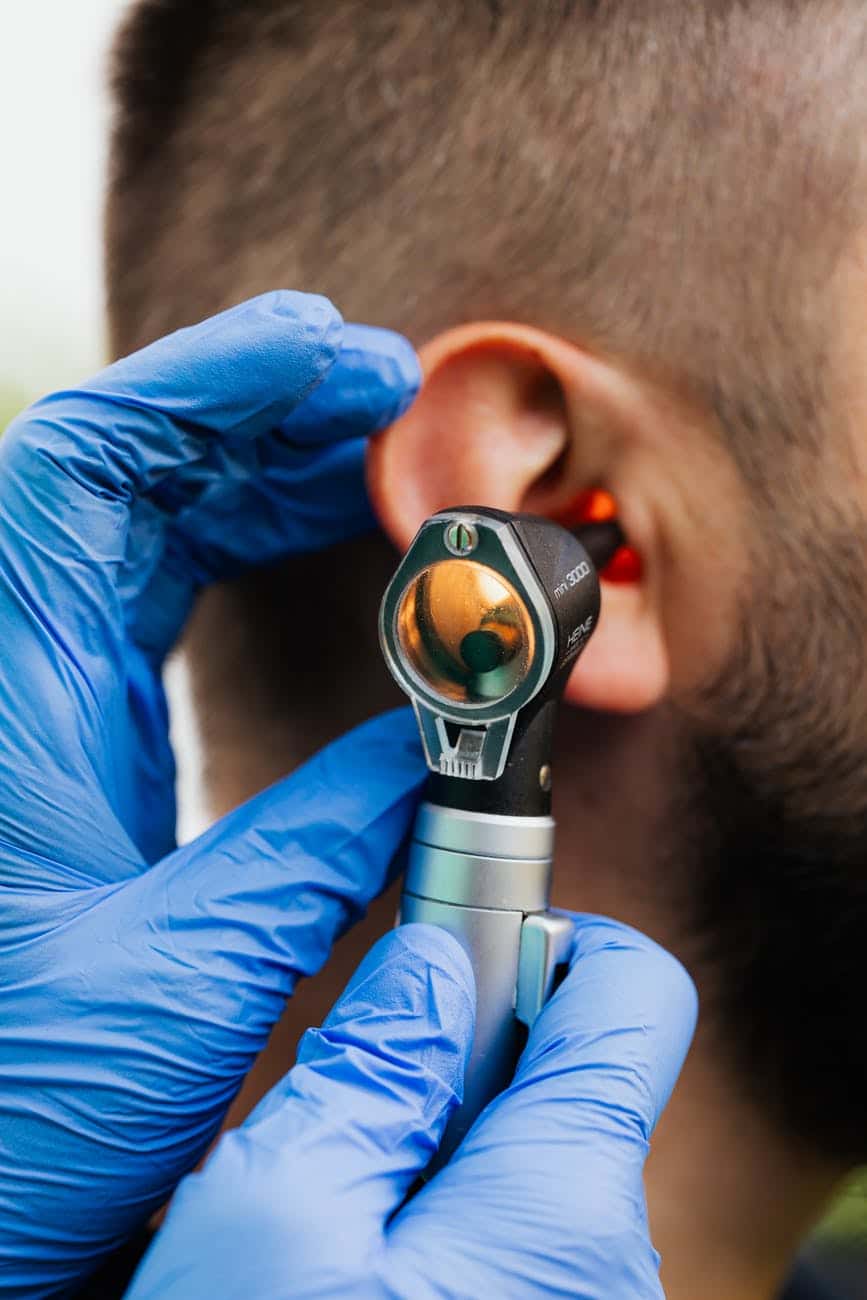We’re all familiar with that feeling of fullness in the ears, muffled hearing and ringing sounds (tinnitus) after a night out at the Georgia Theatre. Did you know that this phenomenon is known as temporary threshold shift (TTS)? We review everything you need to know about TTS below.
What Causes Temporary Threshold Shift?

In order to understand TTS, it’s important to understand how you hear.
Soundwaves from your environment are captured by the outer ear and travel down the ear canal, which leads to the eardrum. When the soundwave hits the eardrum, a vibration is created, which passes through three tiny bones within the middle ear called the malleus, incus and stapes. This vibration reaches the fluid-filled cochlea in the inner ear, which causes the fluid to move. This movement activates the tiny hair cells that line the cochlea called the stereocilia, creating an electrical impulse. This electrical impulse travels via the auditory nerve to the brain where it is interpreted as sound.
When you’re exposed to overly loud sounds, it can bend the stereocilia. They can remain this way for several days or even weeks, which is why it takes some time to regain your full sense of hearing. The louder the noise and the longer the exposure, the longer it will take to recover.
In most cases, it is high-frequency sounds like consonants that are most affected.
Is Temporary Threshold Shift Serious?
As the name suggests, TTS is temporary. However, this doesn’t mean it’s not serious.
While a single loud concert probably won’t cause any permanent damage to your hearing system, repeated exposure can. Repeated episodes of TTS can become permanent threshold shift (PTS).
How Loud Is Too Loud?
Any sound over 85 decibels (dB) can cause damage to your hearing. For reference, this is about the level of passing highway traffic or a busy café. You can tell if a sound is too loud if…
- You have to speak up or shout to have a conversation over the noise.
- You have to stand very close to your conversation partner to be heard.
- Speech sounds seem muffled after exposure to the noise.
- Your ears ring or hurt after exposure to the noise.
Preventing Temporary Threshold Shift
The best way to prevent TTS and PTS is to wear hearing protection. The Georgia Hearing Center at ENT of Athens offers custom hearing protection for maximum comfort and protection. For more information or to schedule an appointment, call the Georgia Hearing Center at ENT of Athens today.